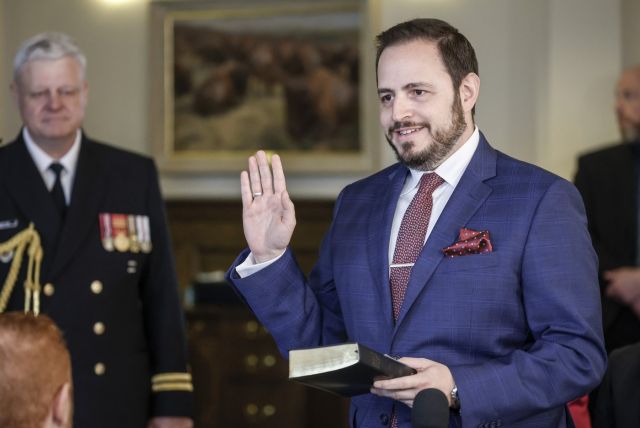Article – Aggression and disruption in Alberta schools reached new highs this spring, prompting Education Minister Demetrios Nicolaides to announce a task force that will explore solutions to an issue many teachers call a crisis.
The announcement follows months of concerning reports from educators across the province who describe classrooms where learning has become secondary to managing violent outbursts, property damage, and threats to staff and students alike.
“What we’re seeing isn’t just typical childhood roughhousing,” says Marie Winters, a Grade 4 teacher in Red Deer who spoke to me last week. “There are days when I spend more time managing safety concerns than teaching curriculum.”
The Alberta Teachers’ Association survey released in April revealed that 85% of teachers have witnessed increased classroom disruption since the pandemic, with nearly half reporting they’ve personally experienced physical aggression from students. These numbers align with what I’ve heard while visiting schools in Edmonton, Calgary and smaller communities throughout the province.
Nicolaides acknowledged these realities at Tuesday’s press conference in Edmonton. “Our teachers deserve to feel safe at work, and our students deserve learning environments where education can actually happen,” he said, flanked by school board representatives and parent advocates.
The minister’s task force will bring together educators, behavioral specialists, and mental health experts to develop recommendations by January 2024. The province has committed $3.5 million for immediate training resources while the longer-term strategy develops.
Some educators remain skeptical about whether the initiative will translate to meaningful change. Jason Schilling, president of the Alberta Teachers’ Association, cautiously welcomed the announcement but emphasized the urgency of the situation.
“Teachers have been sounding alarms about classroom violence for years,” Schilling told me by phone. “While we appreciate the minister’s acknowledgment of the problem, we need solutions that address root causes, not just symptoms.”
Those root causes appear increasingly complex. Edmonton school psychologist Dr. Amrita Singh points to a perfect storm of factors: pandemic-related developmental disruptions, increased screen time, declining social skills, and inadequate mental health supports.
“We’re seeing the consequences of two years of social isolation during critical developmental periods,” Singh explained. “Many students simply haven’t developed the emotional regulation skills they would have under normal circumstances.”
Parents like Calgary’s Teresa Domingo feel caught in the middle. Her son Marcus, a Grade 6 student with ADHD, has been both victim and instigator of classroom disruptions.
“It’s heartbreaking watching your child struggle,” Domingo said during our conversation at a local coffee shop. “The schools are trying their best, but they’re overwhelmed. Marcus needs more support than they can provide with current resources.”
The funding picture complicates matters further. While the UCP government points to record education spending in Budget 2023, critics note that per-student funding hasn’t kept pace with inflation and population growth. This leaves schools scrambling to hire educational assistants and counsellors needed to address complex behavioral needs.
Sarah Hoffman, education critic for the NDP opposition, called the task force “a delay tactic that pushes real solutions down the road.”
“Teachers and students need immediate relief,” Hoffman said in a statement. “That means smaller class sizes, more educational assistants, and better access to mental health supports in schools right now.”
The classroom violence issue crosses urban-rural divides. In Medicine Hat, principal Derek Chartrand described how rural schools face unique challenges.
“When behavioral issues arise in smaller communities, we often lack access to specialized supports that might be available in bigger centers,” Chartrand said. “A student might wait months to see a pediatric mental health specialist.”
Despite these challenges, promising approaches have emerged in some districts. Lethbridge School Division implemented a “zones of regulation” program that teaches students to identify and manage emotional states. They report a 30% reduction in office referrals for behavioral issues since implementation.
Minister Nicolaides highlighted such successful local initiatives as models the task force will examine. “We don’t need to reinvent the wheel,” he noted. “There are excellent approaches already working in Alberta classrooms that could be scaled province-wide.”
For many classroom teachers, however, the daily reality remains challenging. Calgary elementary teacher Priya Sharma described the toll on staff morale.
“We became teachers because we love helping children learn,” Sharma told me. “But many days now feel more like crisis management than education. It’s exhausting and unsustainable.”
As the school year winds down, the minister’s announcement offers a glimmer of hope that September might bring new approaches. But for Alberta’s 46,000 teachers and 730,000 students, meaningful solutions can’t come soon enough.
The path forward will likely require what Red Deer superintendent Chad Erickson called “honest conversations about resources and expectations.”
“We’re asking schools to be everything for everyone,” Erickson reflected. “Academic institutions, mental health providers, social service agencies—all with limited resources. Something has to give.”
For now, Alberta’s classroom violence task force faces the considerable challenge of turning good intentions into actionable solutions before another generation of students and teachers pays the price.






